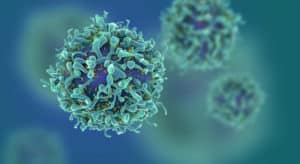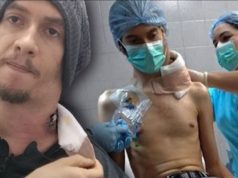A recent study found that a vaccine used in combination with immunotherapy drugs was more effective than the drugs by themselves. The results were small, but significant, according to Neon Therapeutics. It gives us more evidence that experimental and combination therapies could be the next steps in cancer treatment.
Who was involved?
The study included patients with metastatic bladder cancer, metastatic lung cancer, and metastatic melanoma. The melanoma patients saw much better effects from the combination therapy. The therapy prevented the melanoma from growing nearly twice as long compared to the other two cancers.
 Kristen Mueller of the Melanoma Research Alliance said that all of the cancers spread less aggressively with the combination therapy than with just the immunotherapy alone, though. The immunotherapy drugs are sometimes called “checkpoint inhibitors.” The vaccine works by boosting the amount of immune cells that attack cancer, and the vaccines are personalized through genetics to fight a particular individual’s tumor.
Kristen Mueller of the Melanoma Research Alliance said that all of the cancers spread less aggressively with the combination therapy than with just the immunotherapy alone, though. The immunotherapy drugs are sometimes called “checkpoint inhibitors.” The vaccine works by boosting the amount of immune cells that attack cancer, and the vaccines are personalized through genetics to fight a particular individual’s tumor.
Study Limitations
The study did have limitations. It did not take note of whether the patient’s survival time increased. It also did not have a control group who only took the immunotherapy drugs, so there was nothing to compare the combination therapy to.
Jill O’Donnell Tormey, CEO of the Cancer Research Institute, said this study is not a major breakthrough. While the results are encouraging, a more complete study is needed.
The number of patients whose body reacted positively to the vaccine was also much higher in the melanoma cohort than the other two. Neon Therapeutics said they were encouraged enough by these results to now plan a larger and better study with its new personalized vaccine.
Why do we need combination therapies?
The problem with immunotherapies is that while it can cure some patients who were thought to be terminally ill, roughly 60% of the patients who try it do not have any response to it whatsoever. This has caused Neon’s stock to drop dramatically since it became a public business. The results of immunotherapy are too inconsistent.
The shortfalls of immunotherapy are what have led to the trials for vaccines and combination therapies. The immunotherapies often make it easier for the immune system to target cancer cells that have molecules defending them by removing the “force field” around the tumors. The body’s T-cells can then attack the tumor. The problem is that not everyone has enough T-cells to fight the tumor anyway. So if the body does not have enough T-cells, or if they are not strong enough, then the cancer can still spread.
How the Vaccine Could Help
That is where the vaccines become important. They can call as many T-cells as possible to the tumor site to fight. Neon’s vaccine works by identifying which antigens are on the cells of the tumor, and then injecting the patient with millions of that antigen so the T-cells learn to fight it. The problem for the researchers is picking the right antigens to inject. Each vaccine contains thirty, but some patients have more than 8,000 in their body. Luckily, Neon has developed an algorithm to find the best antigens to inject to make the T-cells respond.
While the results are promising, they do not look like a cure-all for cancer. However, a spokesperson from the Dana Farber Cancer Institute was quick to point out that it can still provide a benefit for some patients even if the combination therapy does not have a 100% response rate.
One patient who did benefit was Carole Maloney from Rhode Island, who was diagnosed with melanoma in 2011. Surgery and radiation were effective for her at first, but eventually the tumor spread. That’s when she joined the Neon Therapeutics trial and her tumors began to shrink.
Neon plans to present more detailed information at conferences later this year.


























